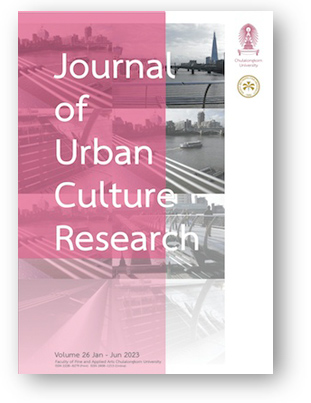Henri Lefebvre’s Spatial Theory as Methodology – A Methodological Reconsideration of the Spatial Triad
DOI:
https://doi.org/10.14456/jucr.2023.18Keywords:
Henri Lefebvre; The Spatial Triad; Methodology; Qualitative Methods; ChinaAbstract
This article presents a methodological toolset for qualitative socio-spatial analyses based on sociologist Henri Lefebvre’s spatial theory (Lefebvre, 1991). While Lefebvre has been extensively treated as an urban theorist, his work has not been widely explored from a methodological perspective. In the article, Lefebvre’s spatial triad is particularly used to develop a concrete methodology for qualitative socio-spatial analyses. While simultaneously focusing on general methodological aspects, this article draws on how the author applied Lefebvre’s spatial theory in a sociological study about intercultural engagements in Shanghai in the context of China’s opening up reforms. More specifically, Lefebvre’s spatial triad is discussed in relation to a bodily engaged research practice, ethnography and four theory of social science approaches.
Downloads
Published
How to Cite
Issue
Section
License

This work is licensed under a Creative Commons Attribution-NonCommercial-NoDerivatives 4.0 International License.
Authors authorize the JUCR to publish their materials both in print and online while retaining their full individual copyright. The copyright of JUCR volumes is retained by Chulalongkorn University.
The views and opinions expressed herein are those of the individual author(s) and do not necessarily reflect the policies or opinions of the Journal (JUCR), it editors and staff, Chulalongkorn University, or Osaka Metropolitan University.








